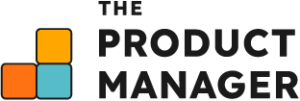There are millions of apps out there—many are successful, but most are not. What are the steps taken by successful app makers that distinguish them from unsuccessful ones? As part of this series, I had the chance to chat with Jesus Vargas.
Jesus has been in the web development game for close to a decade, having started LowCode Agency to provide non-technical entrepreneurs and business owners with their tech needs. After having built 273+ apps for entrepreneurs to Fortune 500 companies, Jesus is an industry leader in the no/low code space.
Thank you so much for joining us! Before we dive in, our readers would love to get to know you a bit better. Can you tell us a bit about your backstory and how you grew up?
Sure! I was born and raised in Mexico City in 1985, where I was homeschooled up to high school. While I wasn’t a geek, I always enjoyed time spent on a computer, either playing video games, exploring the internet when the only way to connect was with a dial-up Compuserve connection, or tinkering around with my dad’s cellphone. I ended up majoring in International Business and was fortunate to begin working during my first year of college, which provided me with a wealth of experience in terms of learning business processes and challenges.
Most of us have been around a lot longer than apps have. What were your hobbies and interests in your youth before anyone knew what an 'app' was?
Writing, which led me to WordPress. Back then, maintaining a blog was a technical issue, and I saw tools like BlogSpot, WordPress, and a few others come to life. Back then, I was very active in the WordPress community because it allowed non-technical people to quickly create a website. So, while it isn't technically an app (though I'm sure WordPress has one in the app stores today), WordPress was my first real interaction with software, and, dare I say, no-code software!
Can you share a story about the funniest mistake you made when you were first starting? What lessons or 'takeaways' did you learn?
This one is not one of the first ones, but it’s funny anyway. We hired a Brazilian developer. He wrote perfect English, and when we spoke on the phone, he mentioned that we could speak in Spanish (I’m fully bilingual). Halfway through the project, when we started sharing videos and documentation in English, and during calls in English, he was too quiet, and it took a while for him to respond… I was wondering what was going on with this guy, and I couldn’t figure it out! A few days later, he sent me a message in Slack, with a very weirdly translated word (in English). That’s when I figured it out... He didn’t speak English, and he had been using a translator the whole time! As you can imagine, his work was not up to our standards since we expect everyone on our team to read, write, speak, and understand English. Since then, we added an English [skills] test for our team members, since most of them are remotely based.
I tend to meet two types of app developers; people who are passionate about app development and technology and people who started an app because they saw it as a means to solve a problem. Which camp would you put yourself in, and how did you arrive there?
I think I would put myself in both camps. I'm not a developer, but I've always been curious and very passionate about technology, app development, and all this stuff. One day, while browsing the internet, I came upon a product called Glide apps. "Create an app from a Google Sheet"—that headline caught my attention right away, and I spent sleepless nights studying how to use this software.
That same week, I had lunch with a friend who urgently needed a property management app. I told him about this new platform I had discovered and how I could help him build a solution. The rocket had taken off!
Entrepreneurship is a marathon, not a sprint—though I suppose sometimes it's both at the same time. What kept you motivated to develop your first minimum viable product, and how have you kept your momentum since then?
Yes, entrepreneurship is a marathon, but my clients are my biggest motivation. It might sound cheesy, but it’s 100% true. I enjoy going into the workplace every day with enthusiasm for the things we're doing. Whether it's software for an SMB to manage their inventory or the MVP, where millions of people stand to benefit—the diversity of ideas and the passion that entrepreneurs bring to the table drive me and my team to do better so that we can give the greatest technology to our clients.
Ok, thank you for all that. Now let's shift to the main focus of this interview. Can you tell us a bit about your agency? How does it help people? What do you think makes it stand out? What are you most proud of?
LowCode Agency has built +273 apps of various types as of today, with the primary goal of assisting non-technical entrepreneurs and business owners with their tech needs so that they can be available to make that project or tool they have had in mind for so long at a fraction of the cost and time of traditional development.
Approximately how many users or subscribers do the apps in your portfolio currently have? Can you share with our readers three of the main steps you've taken to build such a large archive of work?
The solutions we build for our clients are used by thousands of users every day, 24/7. As of today, there are +38,800 active users around the world using the apps we have built.
We are fascinated that our work reaches so many people, and that is thanks to our clients themselves. We've had the good fortune of assisting a large number of people, and we're getting a lot of leads via referrals. Clients are delighted not just by our quality and quickness, but also by our process and recommendations, and word of mouth has helped us expand significantly.
What is your monetization model?
- No code app (8-12k USD), either an MVP to test an idea in the market and get product-market fit, or a custom solution for an SMB to manage a process (employee management, CRM, ERP, inventory, etc).
- Low code app (15-30k USD) for a B2B or B2C SaaS with payments, unique design, multiple user roles, notifications, automations, 3rd party integrations, and more.
- Websites built in Webflow (Starting at 5k USD) for early stage companies working on their online presence with a professionally built, scalable website that is easy to maintain, looks professional and gets leads/users/clients.
Can you tell our readers about the most unconventional tactic you've used to test, market, or gain feedback on a product? What did you try, what was unique about it, and what was the outcome?
We’ve done pretty much everything in terms of marketing. While we mainly focus on inbound leads, we have run ads on social media platforms, paid to be featured on other blogs and websites, teamed up with marketing firms to do revenue share programs with them, et cetera. While working on getting product-market fit, there are so many things that you have to do to find where your customers are and the best way to get to them.
What are some of the strategies you have used to improve your products and build on their success?
Our success rate is 99.9%. Our clients' ROI is the fastest in the industry. Their satisfaction is guaranteed. We listen carefully to their needs and execute their vision every single time.
We ensure that the app not only works as intended, but also help the founders scale their apps with maintenance plans, ongoing support, and suggestions for v2 or v3.
Thank you. Here is the main question of our interview. Based on your experience and success, what are the five most important things one should know in order to create a very successful app?
1 . Identify your niche.
2 . Choose the right technology (decide if you want to go native, PWA or hybrid.)
3 . Define the scope of features covering the major requirements and expectations based on how customers utilize a specific service .
4 . Design a simple and intuitive UX/UI.
5 . Scale based on user feedback.
If you could start a movement that would bring the most amount of good to the most amount of people, what would that be?
I don't know if these will sound cliched... But I like the "pay it forward" movement. When you're looking for opportunities to help, you have your “giving” hat on all day long, which means that you become a better person, happier, and healthier—and on top of that, you're helping someone else who might need something that you might have or be able to give. It’s a win-win situation.
Jesus Vargas is active on Twitter and Linkedin. You can learn more about LowCode Agency on their website.
For more content like this, subscribe to The Product Manager newsletter.


